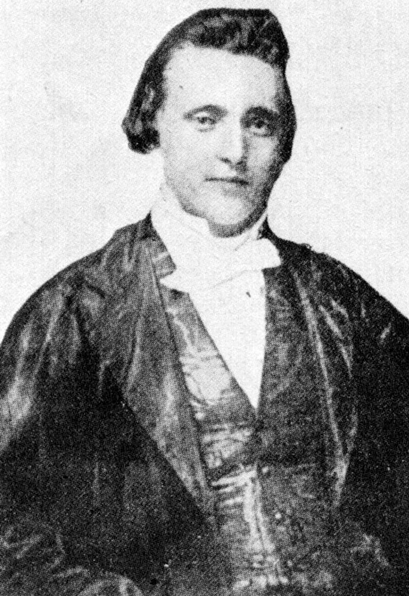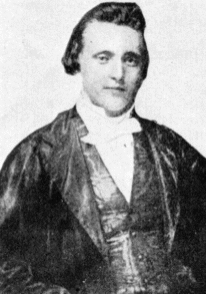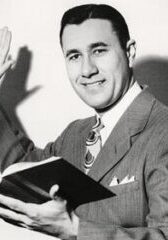Thomas Baker
February 6, 1832 - July 21, 1867
Missionary
Missionary
From Sussex, England
Served in Viti Levu, Fiji
Affiliation: Methodist
“If I can accomplish this, I shall be the lion of the day,”
In the records of history, the story of Thomas Baker stands as a stark reminder of the perils faced by missionaries during the 19th century. Born on February 6, 1832, Baker was a Methodist missionary who ventured to Fiji, eager to spread the Christian faith. Little did he know that his journey would end in a gruesome act of cannibalism, making him the only known missionary to suffer such a fate in the archipelago.
Baker’s Journey to Fiji
Baker’s journey to the heart of Viti Levu began with a trip through the Taukei ni Waluvu’s Christian enclave, situated on the East bank of the Wainimala River. Upon meeting a local chief of Navatusila, Baker presented a British comb as a token of goodwill and tried to persuade the chief to embrace Christianity. When his efforts were met with refusal, Baker attempted to retrieve his comb, inadvertently touching the chief’s head in the process. In Fijian culture, such an act was considered highly disrespectful and offensive.
This seemingly minor infraction would seal Baker’s fate. A chief of Naitasari sought revenge for the insult, gifting a tabua (whale tooth) to a local clan to set in motion the plot to kill Baker and his party. The gruesome plan was executed in the village of Nabialevu (Nadrau), where Baker and seven Fijian Christian workers were killed and cannibalized. The victims, alongside Baker, included Setareki Seileka, Sisa Tuilekutu, Navitalai Torau, Nemani Raqio, Taniela Batirerega, Josefata Tabuakarawa, and Setareki Nadu. Two other men, Aisea and Josefa Nagata, managed to escape the massacre. Following the tragedy, the Davuilevu mission was temporarily closed in 1868.
The Aftermath of Baker’s Death
The story of Thomas Baker has resonated throughout history, even capturing the imagination of famed author Jack London. In 1909, London published a short story titled “The Whale Tooth,” which satirized Baker’s tale. The story follows missionary John Starhurst as he attempts to spread the gospel throughout Viti Levu, blissfully unaware of the life-altering events that awaited him.
Over a century later, in a remarkable act of atonement, the residents of Nabutautau apologized to Baker’s family for the gruesome events that transpired 136 years prior. In 2003, Baker’s descendants, Fiji’s Prime Minister Laisenia Qarase, and 600 attendees gathered in the village for a tribal ceremony. The villagers believed that their community had suffered from a curse since the cannibalism incident and hoped that their apology would bring them good fortune.
Baker’s great-great-grandson, Geoff Baker, expressed his overwhelming gratitude for the warm reception his family received in the remote village. The attendees participated in a symbolic “cutting of the chain of curse and bondage” over the village, hoping to usher in a new era of prosperity and understanding.
The Power of Forgiveness and Reconciliation
The details of Thomas Baker’s demise remain subject to debate. Some accounts suggest that the act of touching the chief’s head led directly to his gruesome end, while others argue that a broader power struggle between rival chiefs may have been the catalyst for the tragedy. Regardless of the true cause, the story of Baker and his eight Fijian companions serves as a cautionary tale about the dangers of cultural misunderstandings and the devastating consequences they can bring.
The village of Nabutautau, located in the center of the main island Viti Levu, has struggled in the years since the incident. With no roads, schools, or medical facilities, the locals have attributed their hardships to the curse brought upon them by their ancestors’ actions. The village chief, Filimoni Nawawabalevu, expressed his belief that the apology to Baker’s family would help cleanse the village of its perceived curse.
In a show of forgiveness and understanding, Geoff Lester, Baker’s great-great-grandson, stated that he and his family would be happy to help the villagers in any way they deemed necessary. It is important to note that Lester and his family do not believe that the village is cursed due to its cannibalistic past. However, the willingness to make amends and build bridges between the two families demonstrates the power of healing and reconciliation.
The Legacy of Thomas Baker
Thomas Baker’s story has left an indelible mark on Fiji’s history. The preservation of his sandals in the Fiji Museum serves as a stark reminder of the events that unfolded over a century ago. Baker’s death is one of the few recorded instances of a Westerner falling victim to Fijian cannibals. The practice of cannibalism in Fiji came to an end in the mid-19th century with the acceptance of Christianity.
The tale of Thomas Baker and the tragic fate that befell him and his companions is a sobering account of the risks faced by missionaries and explorers in the 19th century. The cultural misunderstandings that led to such a gruesome outcome serve as a reminder of the importance of respecting and understanding the customs and beliefs of other cultures. The reconciliation between Baker’s family and the village of Nabutautau over a century later showcases the power of forgiveness and the ability to heal even the deepest of wounds.
This article is not our work. It can be found here.




